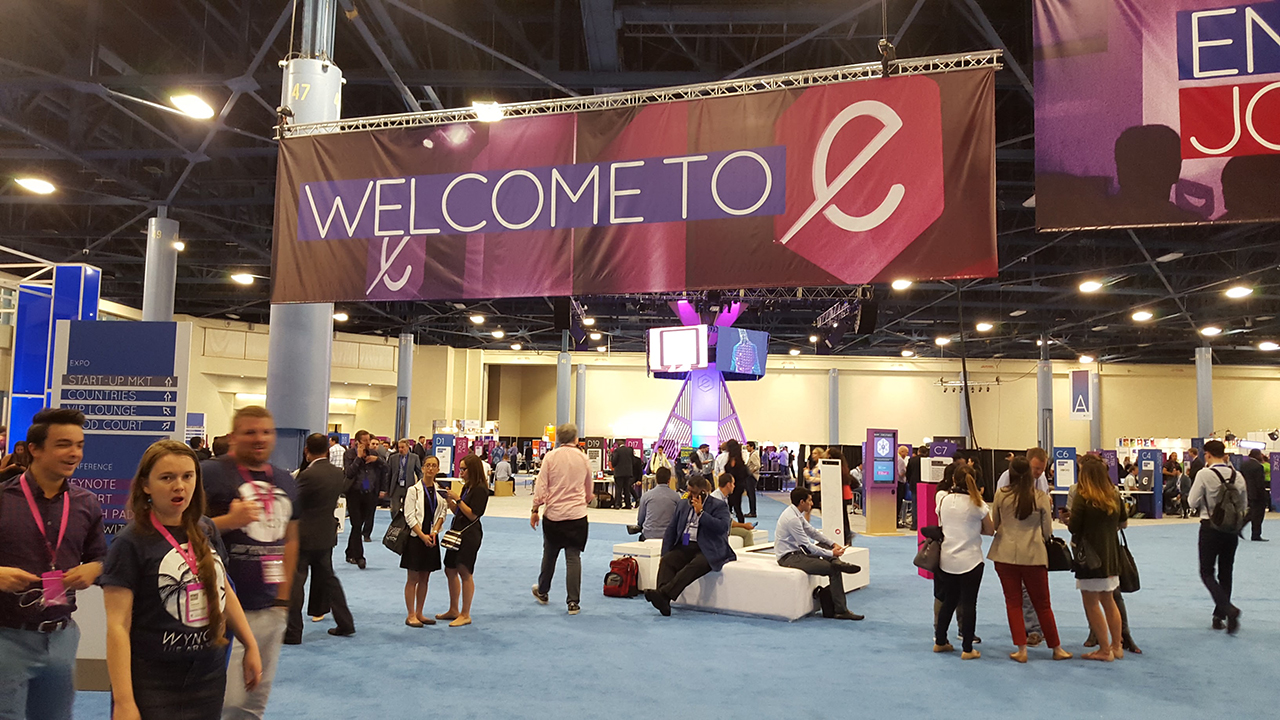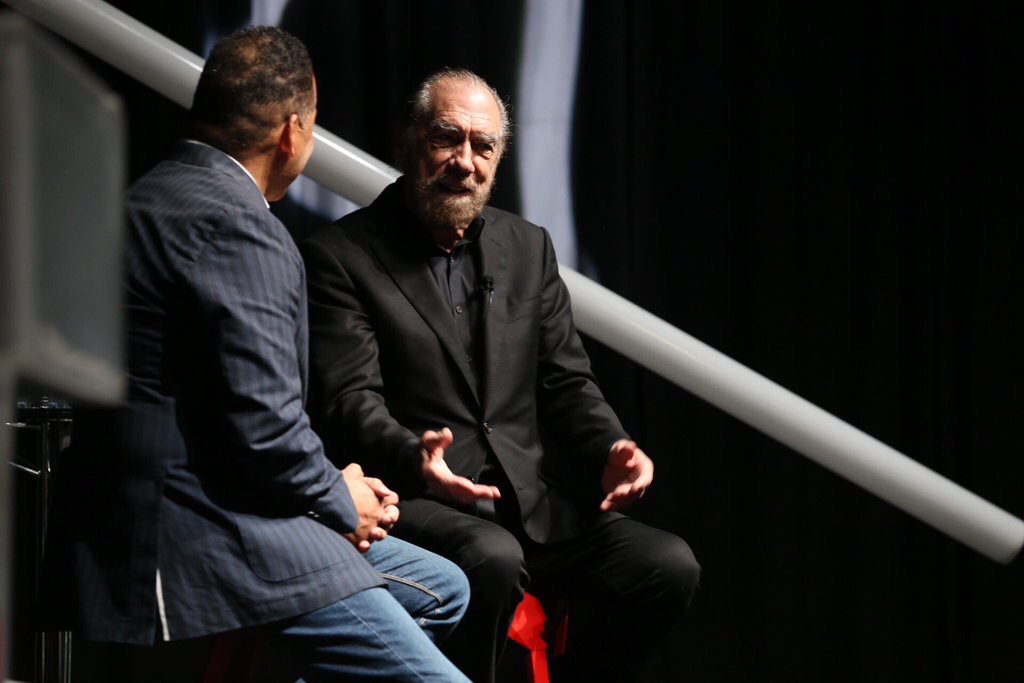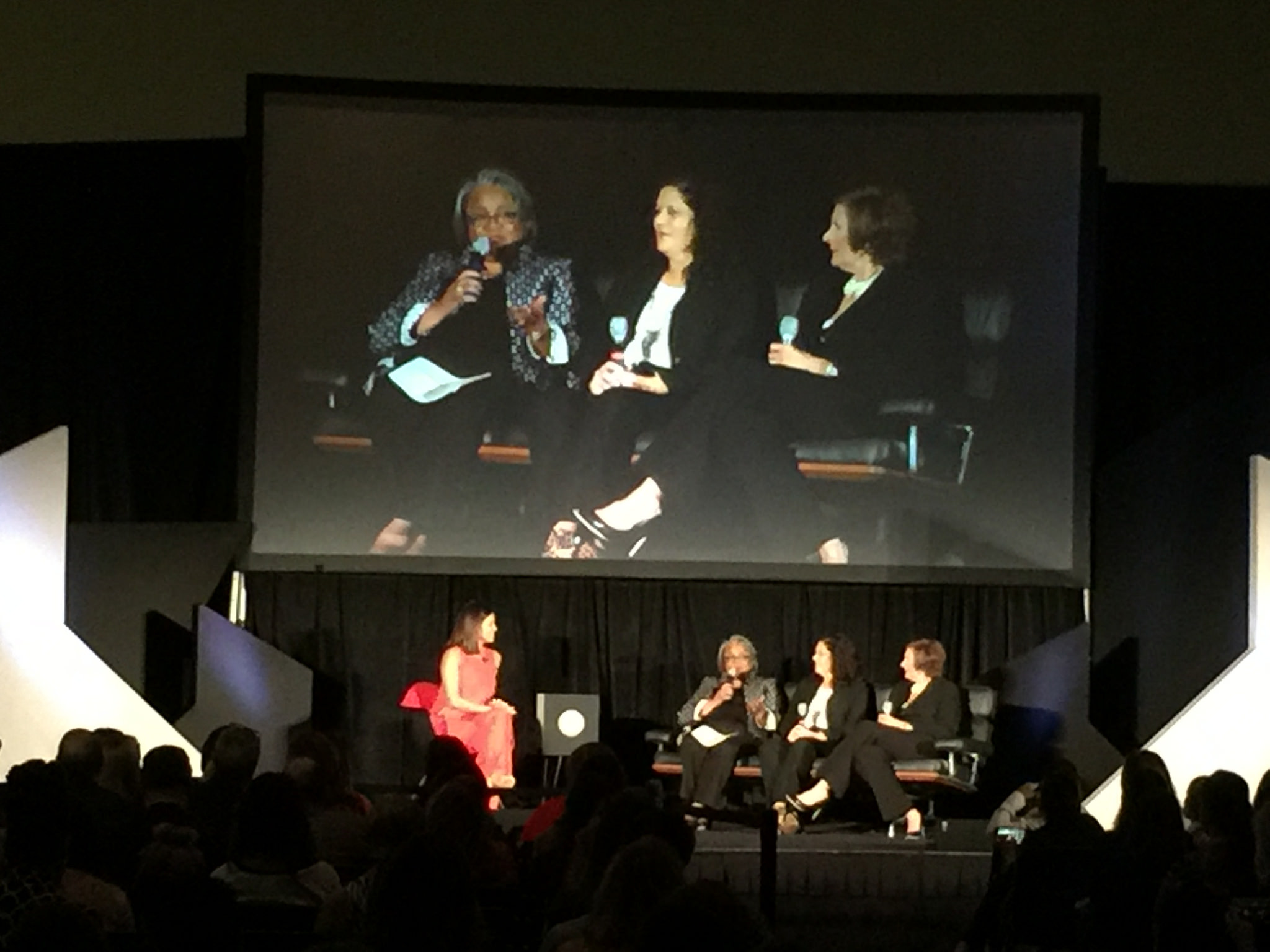
From tech to personal promise, eMerge Americas looks to the future
Above: eMerge Americas 2016 by Robertson Adams.
The 2016 edition of eMerge Americas, the two-day tech conference and expo at the Miami Beach Convention Center, closed last week in a fitting manner: looking at the future. The last order of business after two intense days of presentations, panels, pitches and networking last week was the Startup Showcase Award presentation to University, Early Stage and Late Stage startups — and announcing an early-bird registration opening the next day for eMerge Americas 2017.
In technology, especially, it’s never too early for the future — and eMerge 2016 did sell out.
The event, with founding partners Knight Foundation, Medina Capital, Miami-Dade County and Greenberg Traurig, attracted 13,000 participants and 500 companies from 60 countries, local and international universities as well as media partners such as NBCUniversal, which broadcast live from the event through its subsidiaries CNBC and Telemundo.

Keynote speaker John Paul DeJoria, co-founder and CEO of John Paul Mitchell Systems, in conversation with motivational speaker Tim Storey. Courtesy eMerge Americas.
There were several intriguing, often-illuminating, discussions, including talks by computer scientist, inventor and author and entrepreneur and philanthropist John Paul DeJoria, best known as a co-founder of the Paul Mitchell line of hair products and The Patrón Spirits Company, as well as a panel on “The Changing Worlds of Media and Music,” which included musician and entrepreneur Armando Christian Perez (Pitbull). Also worth noting, the winners of the startup awards were: In the Later Stage Startup category, Mediconecta won $100,000 and other in-kind prizes; Early Stage Startup winner Cetus Labs received $50,000; and the University Startup Winner, Tinker Build, from FIU, received a $25,000 prize.

IBM Vice President Denise Evans speaks on the Women, Innovation and Technology summit at Emerge Americas 2016. Photo by Michael Bolden.
But the highlight of the second day at eMerge was the Women, Innovation & Technology summit which included an expansive thematic range, including a talk on “The Price of Shame,” by author and activist Monica Lewinsky, but also “FinTech for Financial Empowerment: Leveraging Disruption in Financial Services to Create Innovation Solutions for Financial Inclusion.”
Lewinsky, who spoke before a full room of more than 500 people, with more watching in an adjoining space, noted that the scandal resulting from her affair with then-President Bill Clinton, “was brought to you by the digital revolution. This meant we could access all the information we wanted, when we wanted it, anytime, anywhere. When the story broke in January 1998, it broke online.” It was the first time, she pointed out, that traditional news followed the internet. That news was online meant that she was “patient zero in losing a personal reputation on a global scale instantaneously.”
Perhaps reflecting her weariness regarding digital media, no photo, video cameras or recording devices were allowed. There was no tweeting. (Low-tech recording instruments such as pen and paper were allowed.)
The talk was in fact, a call for empathy and compassion and “the responsibility that comes with freedom of expression.” She spoke of Tyler Clementi, the Rutgers student who committed suicide after his roommate used a webcam, without his permission or knowledge, to show him kissing another man, and the consequences of cyberbullying.
To those who have been the subject of such “blood sport,” as she put it, she had a simple, hopeful message: “You can survive it.”
Later in the same room, a powerhouse panel comprising Aminda (Mindy) Marqués Gonzalez, executive editor and vice president for news at the Miami Herald; Denise Evans, vice president, women & diversity B2B marketing for IBM; and Miriam Lopez, president and chief lending officer at Marquis Bank, with moderator Pamela Silva Conde, co-anchor of Univision’s “Primer Impacto, ” discussed their personal and professional experiences.
Their conversation addressed issues such as visibility and the you-can-have-it-all proposition. “I believe I have the capacity to be excellent at one thing at a time,” said Evans. “I did a great job with the family and the kids but my excellence was with the work. Other times, I needed to be a mom, a daughter or a wife — and then I wasn’t so excellent at the job. So yes, you can have it all. I just don’t think you can have it all at the same time.”
At another point, while discussing attitudes in the workplace, Lopez noted what she called “the queen bee syndrome.” In a beehive there is one queen bee, she said, “and everybody else is a worker. We don’t tend to pull up, integrate other women and create the partnerships that men do. We need to build on each other’s success, pull each other up and create that sisterhood.”
But what produced murmurs of recognition in the hall were the reflections by the panelists on the propensity of women to verbalize their fears.
“So when something freaks us out we just say it. Don’t say, ‘I can’t do it,’ because there are already too many people doubting you. Why would you verbalize it for somebody else and give them more reason to doubt you?” said Marques. While Evans noted, “Men go for potential. We women feel we have to know exactly how to do the job before we take it.” She then retold a story that the CEO of IBM told her about how, the first time she was asked to lead a huge part of the company, she responded, “I don’t know if I’m ready for that.”
“So she goes home,” said Evans. “Tells her husband and her husband says, ‘You said what?’ A man would say, ‘How much more money will I make?’ and ‘Where is my office?’ Keep your mouth closed. Even if you’re thinking it, don’t say it. Take a deep breath and say, ‘Yes, if you think I can do it, I know that I can do it.’ Take the job.”
That made Jeneive Lagoon, a 10-year sales veteran of Microsoft who, as it turned out, happened to be negotiating a director position with Infotrans Caribbean, in Curacao, chuckle.
“We were one of the companies invited by the mission of Holland and Curacao, and it has been a very good experience—great speakers, networking, talking about innovation, new products, ideas,” she said. “But I especially enjoyed this talk. It helps create the awareness of the subconscious obstacles that we as women put in front of ourselves as we try to advance in our career. We need, especially, to think about our potential instead of just the now.”
Fernando González is a Miami-based arts and culture writer. He can be reached via email at [email protected]
Recent Content
-
Communitiesarticle ·
-
Communitiesarticle ·
-
Communitiesarticle ·


